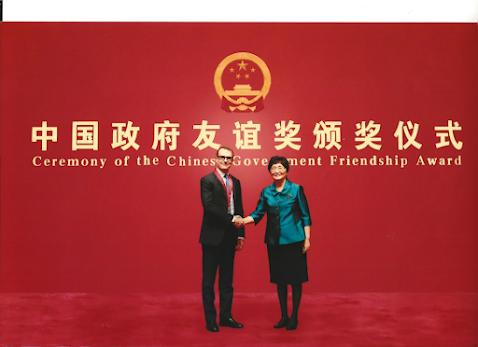Biodiversity Thrives in 'Lazy' Aquaculture Practices in Hubei: Biodiversity Conservation in Our Neighborhood (BCON) Case Study
In Hubei Province, China, "lazy" aquaculture farmers employ traditional farming methods. After harvesting fish during the winter, they do not rush to use disinfectants for complete sterilization, allowing various unwanted fish and shrimp species to survive in the ponds. This practice provides a food source for migratory birds spending the winter in the area. It's only when they start planning for the new year that the farmers thoroughly disinfect the ponds to ensure a bountiful harvest of their target aquaculture fish. As then, those migratory birds have already flown away.


In contrast, industrialized practices often involve the use of chemical agents to disinfect the entire pond (artificial wetland for aquaculture) after harvesting the target fish during the winter. This aims to reduce interference from non-target organisms the following year, resulting in the death of unwanted aquatic life during the "disinfection" process.
Throughout this entire process, no one, including local governments and investment institutions, invests an extra penny specifically for biodiversity protection. The farmers themselves may not even be aware of the concept of biodiversity conservation; they simply follow traditional labor methods. Interestingly, this "laziness" inadvertently provides a source of food for birds during that crucial time gap.
In this case, we see the role of the "Biodiversity Conservation in Our Neighborhood" (BCON) solution:
1) No need for biodiversity financing.
2) The primary goal of the actors involved is not biodiversity conservation, yet their actions objectively yield positive biodiversity conservation outcomes.
3) The actors do not expend any additional time or effort for this purpose.
4) Biodiversity conservation in this case directly stems from the fact that the actors, through traditional labor methods, avoid the damage caused by industrialized fish farming operations.
Biodiversity Conservation in Our Neighborhood (BCON) is a solution for biodiversity conservation aimed at protecting biodiversity through the involvement of people in the processes of production and daily life. Launched by China Biodiversity Conservation and Green Development Foundation (CBCGDF), the core aim of the BCON project is to drive ecosystem protection and promote sustainable livelihoods through grassroots participation. Unlike the prevalent international practices that often focus on species preservation or the establishment of protected areas, BCON places an emphasis on integrating nature conservation into people's everyday production and life processes.
This fresh perspective brings about several noteworthy advantages. Firstly, it helps address the pressing issue of limited funding in the conservation sector, as it requires no additional biodiversity financing. Secondly, it contributes significantly to biodiversity preservation while promoting human well-being. Lastly, BCON creates sustainable economic opportunities within local communities.
[original story in Chinese see]
https://baijiahao.baidu.com/s?id=1701739635453515407
https://www.thepaper.cn/newsDetail_forward_14826810
Writer: Littlejane
Editor: Daisy
Contact: v10@cbcgdf.org; +8617319454776

Contribution
Do you know? CBCGDF is a non-profit organization. We rely on crowd-funding and donations. You have the opportunity to help us to advance biodiversity conservation. Donate TODAY to power up the movement to make it a better world for all life.
https://www.paypal.me/CBCGDFChina
http://www.cbcgdf.org/English/ConfirmDonaTion/0.html



Comments
Post a Comment